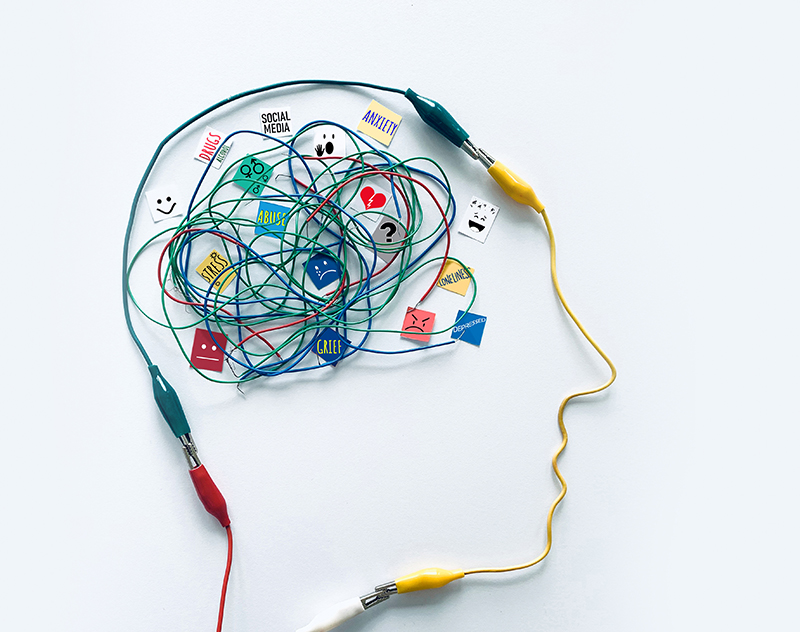Last Updated on: 13th September 2023, 04:22 pm
Football and Mental Health
Tips for supporting your players’ mental health
Around one in four people will experience a mental health problem in any year. Mental health problems range from common problems, such as depression and anxiety, to rarer problems such as schizophrenia and bipolar disorder. Mental health problems can affect anyone at any time and being open about it is the best way to deal with it. There have been plenty of stories recently about elite athletes needing to take time out for their mental well-being.
 Football and mental health
Football and mental health
A few years ago, a new survey was carried out among 2,014 football fans. It showed that:
- Football is the number one topic of conversation between fans and their friends.
- Only 1 in 3 football fans regularly talk about mental health with their friends.
- Male fans were less likely to do so. Only 27% of male respondents said yes compared to 47% of women.
- Male football fans were over 3 times more likely to talk to their friends about football than their mental health.
- 40% of football fans find it easier to talk about their mental health when they are busy with other activities. For example, when walking, running, driving, going to the pub, or watching sports.
- 32% would find it easiest to have a face-to-face conversation at home with no distractions.
Changing the conversation
These statistics show that there is still some stigma surrounding mental health, which seems to be particularly strong for men. With that in mind, the FA has been focusing more on mental health and how clubs can offer support. Clubs must become comfortable and confident when talking about mental health. It should be treated in the same way that people treat physical injuries.
What can clubs do?
Understanding your mental health struggles and those of other people is an important part of coming together as a team. Former Norwich and Crystal Palace striker, Leon McKenzie, says managers simply need to ask players about their lives outside of the game. McKenzie retired from football in 2013 after an 18-year career. His career ended after he attempted suicide and suffered from severe injury problems. In an interview with Sky Sports, McKenzie talked about the importance of simply checking in with someone and opening up about their feelings.
“It was interesting for me; it wasn’t because nobody cared, but as human beings, we have this reluctancy; if you see a man crying, that is uncomfortable for us. Really, all I needed was for someone to ask if I was OK. It’s so simple. I wasn’t alright.”
The game needs to be about more than just someone’s performance on the pitch. Keeping an eye on their mood and asking questions will help. Just knowing that there is somebody to talk to could be enough.
Tips for coaches
Nobody expects everyone to be an expert in mental health. It’s important that people feel supported enough to talk about how they are feeling. There are certain things that you can do as a coach to help your players.
- Observe your players: you will spend many hours over a season watching your players on and off the pitch. Look for changes in their attitude, behavior, and mood. If they start to behave out of character, it could be a sign that something is wrong.
- Talk to them: having a positive relationship with your team is important as it gives players more confidence to share their feelings. Ask your players how they are when they arrive as it creates a culture of care and support.
- Create a positive atmosphere: don’t just focus on the competition. Make sure that everyone is enjoying themselves at training and on match days. Prevent players from feeling too much pressure to perform. Make sure people are experiencing the benefits of physical activity and get everyone involved.
- Promote team spirit: Encourage all of your players to support each other and be open about how they feel. It might be helpful to have a debrief after a hard training session or a disappointing result.
- Tailor your approach: think about how they act toward their players and how it might affect their mental health. An assertive approach might not work for everyone.
- Listen to them: Don’t push a player if they don’t feel able to train or play. Although, let them know they can come along and watch if they are up to it.
- Look after yourself: maintaining your own mental health is an important part of your role. It is easier to help others if you are feeling strong. Connect with other people in your club or football in general. Create a support network of coaches to talk to.
Once mental health becomes a topic that everyone on the team is comfortable with, it will be easier for you going forward. You’ll all be more aware of what’s going on and how to deal with it.
More Advice
There are plenty of people you can reach out to for support. Mind is a charity that is working to change the conversation about mental health. You can contact them directly to get advice about mental health struggles.
If you have young players, encourage them to speak with their parents. You can even suggest being there with them. The individual should then discuss the matter with a healthcare professional.
If you are looking for advice on how best to approach mental health issues at your club, there are plenty of resources available on the FA website.
Football as a Healing Tool
Remember, sports can be a powerful tool in helping to manage symptoms and aid recovery. Exercise affects your brain and is a great way to aid your mental health recovery. A study published in the British Journal of Sports Medicine examined the effects of physical activity on a variety of mental health issues. The study confirmed that exercise is an effective form of treatment. The higher the intensity of exercise, the more beneficial it is. As well as football being a social and economic benefit to society, it also provides massive positives for individuals’ mental health. Football is a great way to help a person’s recovery, so it’s important to make those people feel as though they can participate.


